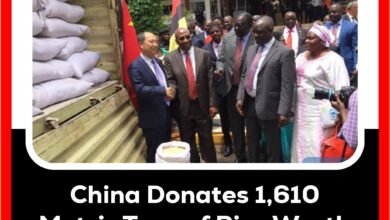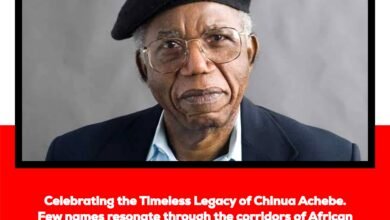5th African Conference for the Promotion of Peace: Dialogue & Reconciliation, prerequisite for peacemaking, core for preventive diplomacy

Nouakchott – The 5th African Conference for the promotion of peace closed on January 23rd in Nouakchott, Mauritania with a message of hope and a set of concrete measures to promote peace in Africa and in the Islamic World at large.
The three-day conference (Jan 21-23), organized in partnership between the Mauritanian government and the Abu Dhabi Peace Forum, was held under the slogan: “The African continent: the duty of dialogue and the relevance of reconciliation”.
HE Mahjoub Bin Bayyah, Secretary General Assistant of the African Conference for Peace told the New Africa Magazine that “an electronic platform has been designed for peacebuilders, in addition to developing a series of tailored training programs for youth and women peacemakers and creating a fund for reconciliation.”
“This online space would allow scholars, traditional leaders and intellectuals to share experiences and concrete models of action,” he added stating that “the training would, for its part, provide the necessary tools for young people and women to play a key role in promoting peace.”
Africa torn by conflicts needs dialogue & reconciliation

During the opening ceremony, His Excellency, President of the Islamic Republic of Mauritania, Mohamed Ould Cheikh Ghazouani said that “consolidating the spirit of dialogue and reconciliation has become one of the most urgent priorities on the African continent, given the prevalence of wars, conflicts, social unrest and the alarming growth of extremism, violence and terrorism in the world.”
He added that “the most effective way to counter the growing deterioration of security and stability in African societies is to make dialogue a key pillar of their political and social governance systems.”
According to a 2023 report of the Africa Center for Strategic Studies, there are at least 16 African countries in conflict stretching from the western Sahel through the Horn of Africa, encompassing the Lake Chad Basin and Great Lakes regions. In addition, the number of Africans who are forcibly displaced has risen over the past years and now totals over 40 million people. It is noted that frozen conflicts fuel and normalize nationalist narratives and sentiments, thus creating unsafe environments and paving the way for violent extremism.
Collective thinking drive initiatives for peace, Ben Beyya

For his part, Sheikh Abdullah Ben Beyya, founder and convener of the Conference and one of the most renowned and notable scholars in the Islamic World, acclaimed for his initiatives for dialogue among Abrahamic religions said that “Nothing is more urgent and pressing than the need to restore peace, mercy and cohesion, and nothing is more important and worthy of our collective attention than to spread harmony among peoples, and stand against discord and hatred, it is truly the foundation of life.” Ben Beyya, also the President of the Abu Dhabi Forum for Peace and Grand Mufti of the United Arab Emirates, added that “this is the main concern that drives us in all our initiatives, and the ultimate goal of all our meetings.”
This large-scale event brought together the key actors of the continent around the essential theme of peace and dialogue. These included dozens of scholars, sheikhs, thinkers, researchers, representatives of civil society organizations and youth and women’s activities, from various countries of the African continent and the world.
Alassane Ouattara receives 2025 African Peace Promotion Award

At the end of the opening ceremony, the Conference, has awarded the “2025 African Peace Promotion Prize” to Ivorian President Alassane Ouattara. The President of the Islamic Republic of Mauritania, HE. Mohamed Ould Cheikh El Ghazouani handed over the prize to Outtara’s representative, Minister of State and Special Advisor, Jeannot Ahoussou-Kouadio, and highlighted the central role that Ouattara played during the 2002 Ivorian crisis at the end of which he managed to reconcile Ivorians among themselves.
Preventive diplomacy, a genuine response to preventing conflicts

According to a UN Security Council meeting in March 2023 (SC/15249), diplomatic representatives at the UN highlighted the links between durable peace, inclusive development, security and stability in the African continent. They emphasized the need for greater international cooperation and support for “African solutions to African problems”, during a debate on the impact of development policies in implementing the African Union’s “Silencing the Guns” initiative.
In this regard, the African Conference for Peace is seen as a credible platform encouraging dialogue among key global actors and experts in diverse field from religion to human rights, development, culture, while incorporating the African perspective in global discussions on peace and security on the continent.
This platform focuses on identifying opportunities to address the causes of conflict and creating spaces for dialogue and reconciliation. The conference also highlighted the importance of enhancing the role and meaningful participation of women and youth, and religious leaders in the processes of conflict prevention and resolution to ensure the efficient functioning of the instruments of peace in order to facilitate the tangible progress
This could only be considered an essential pillar of preventive diplomacy in a form of parallel actions uninitiated by non-state actors to prevent disputes from escalating into conflicts and to limit the spread of conflicts when they occur. Prevention addresses the root causes of conflict from a perspective that integrates these pillars: peace and security, human rights, inclusive development and cultural and religious awareness and awakening, spreading values of moderate religion, gender equality, dialogue among civilizations and diversity and universal human rights
Karima Rhanem, Senior Editor, North Africa





